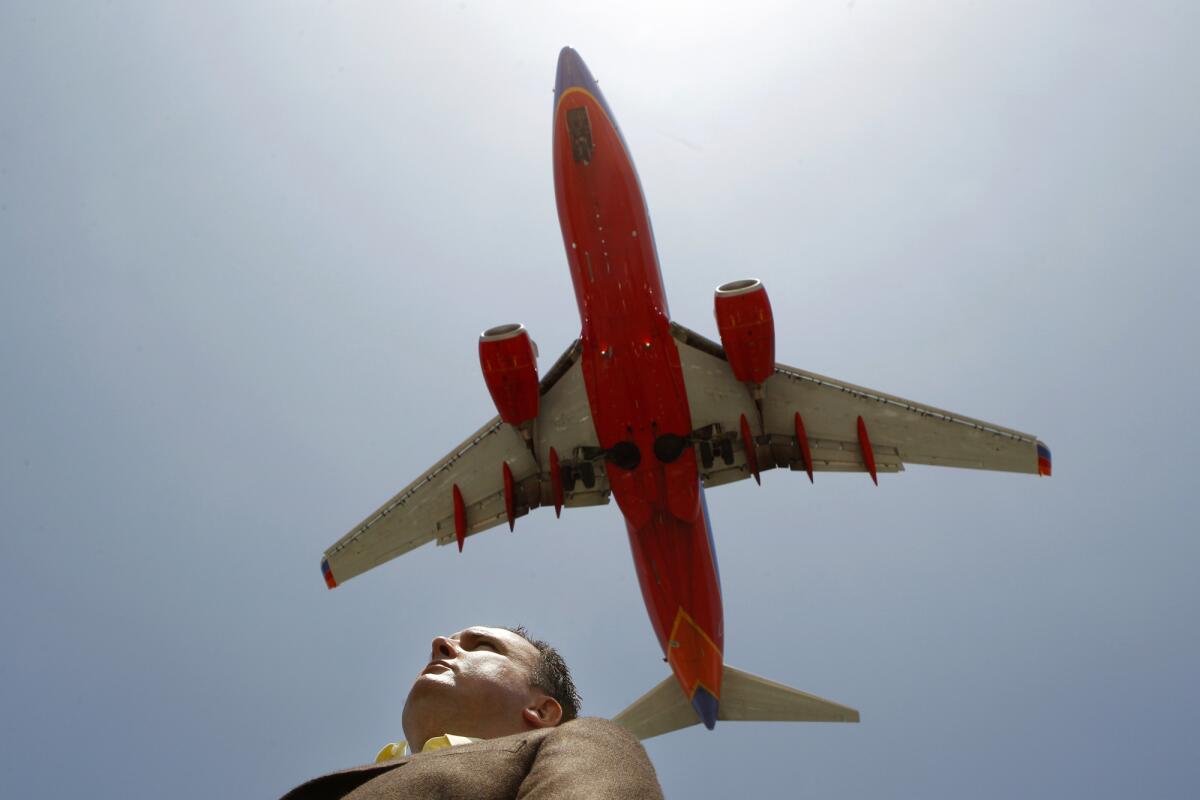Supreme Court seems to back ex-TSA air marshal’s whistle-blower claim

Former air marshal Robert MacLean near John Wayne Airport in 2013.
Two years after the Sept. 11 attacks, Robert MacLean, an air marshal from south Orange County, learned from a text message of the government’s plan to stop using armed marshals on overnight flights from Las Vegas. The aim was to save money.
Alarmed by what he considered a threat to public safety, MacLean complained to his superiors. When they did nothing, he alerted a reporter for the cable network MSNBC. The news report drew the ire of congressional leaders, and the Transportation Security Administration quickly backed off.
MacLean was not hailed as a hero by his employer. Instead, he was eventually fired for having revealed what government lawyers called “sensitive security information.”
The Supreme Court took up MacLean’s case Tuesday, and most of the justices said he had strong claim to be protected as a whistle-blower.
Neal Katyal, a former U.S. solicitor general who represented MacLean, said his disclosures did not threaten the nation. “He saved national security,” he said.
“And he was successful,” Justice Antonin Scalia said. “They called it off.”
The justices spent most of the hour arguing over two seemingly contradictory phrases in the Whistleblower Protection Act. It says a federal employee is protected if he or she reveals a “specific danger to public health or safety,” unless disclosing such information is “prohibited by law.”
Government lawyers said the TSA had issued regulations forbidding disclosures about air marshals, and so MacLean’s statements to the media were not protected.
But Scalia and Chief Justice John G. Roberts Jr. questioned that contention, because Congress did not specifically mention whether the agency’s regulations were also covered.
“The facts are very much in your favor,” Justice Sonia Sotomayor told Katyal, saying that MacLean’s disclosure worked to protect public safety.
But a government lawyer warned the justices that a ruling in MacLean’s favor would open the door wide for disgruntled TSA employees. “It could mean any one of its 60,000 employees may disclose sensitive security information,” said Ian Gershengorn, a deputy U.S. solicitor general.
MacLean has been fighting for eight years to get his job back, but even a Supreme Court victory won’t assure that.
“It means I can go back to the Merit Systems Protection Board,” he said outside on the court’s steps, referring to an independent agency used to protect government employees from unfair personnel practices. Whistle-blowers can use the law as a defense when they are fired or otherwise disciplined.
The high court will decide whether MacLean can claim whistle-blower status when it hands down a decision in a few months in Department of Homeland Security vs. MacLean.
Twitter: @DavidGSavage
More to Read
Start your day right
Sign up for Essential California for news, features and recommendations from the L.A. Times and beyond in your inbox six days a week.
You may occasionally receive promotional content from the Los Angeles Times.







